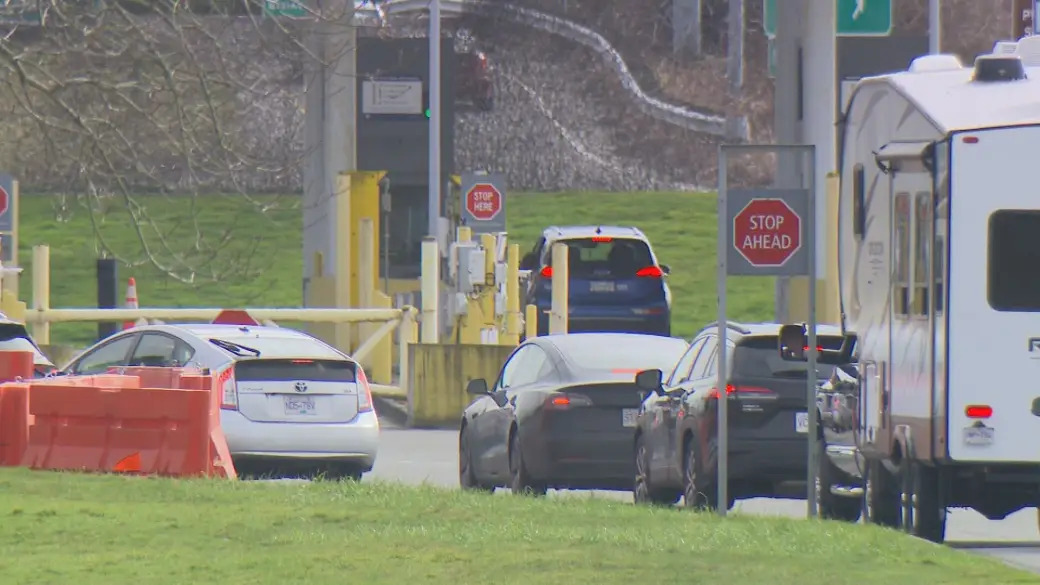New data suggests that fewer British Columbians are crossing into the United States, with a 30% decline in traffic through the Peace Arch border crossing this February compared to the same time last year. Experts say the drop is likely driven by President Donald Trump’s tariff threats, combined with economic factors such as a weaker Canadian dollar and winter weather conditions.
B.C. Premier David Eby has urged residents to avoid traveling to the U.S. in response to Trump’s proposed reciprocal tariffs, set to take effect on April 2. Additionally, a 25% tariff on Canada and Mexico related to fentanyl concerns is scheduled for March 4. Despite pushback from Canadian leaders and businesses, Trump has refused to halt the tariffs, stating his priority is addressing the fentanyl crisis.
Laurie Trautman, a border policy researcher at Western Washington University, noted that while snowstorms in early February may have contributed to the decline, the numbers indicate that the tariff threats are having a real impact on cross-border travel. “It does sort of point to impacts from those threats,” she told Global News.
Public sentiment in B.C. appears to be shifting, with more Canadians choosing to shop locally rather than spend money in the U.S. Bridgitte Anderson, CEO of the Greater Vancouver Board of Trade, believes the damage has already been done, stating that even if tariffs don’t materialize, frustration with the U.S. will linger.
Guy Occhiogrosso, president of the Bellingham Regional Chamber of Commerce, said his team has noticed fewer B.C. license plates in local parking lots. “Anecdotally, we’re hearing Canadians say they’re not shopping in the U.S. anymore,” he added.
While fewer Canadians are heading south, the trend doesn’t appear to be reciprocal. The strength of the U.S. dollar has made it cheaper for Americans to visit Canada, leading to continued cross-border trips for shopping and dining.
As tensions over tariffs and trade continue, experts suggest that B.C. residents’ travel habits may not return to normal anytime soon, particularly if political frustrations remain high. The next few months will be crucial in determining how deeply the impact of Trump’s policies is felt on both sides of the border.

